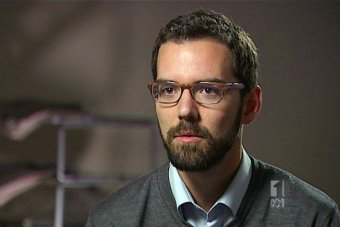Australia/Israel Review
Scribblings: HRW – No Facts Required
Feb 26, 2013 | Tzvi Fleischer

Tzvi Fleischer
There is a great deal we don’t know or that is pure speculation about the tragic story of Ben Zygier/Prisoner X.
But here is one thing we absolutely do know about this saga – the NGO Human Rights Watch again demonstrated that it does not need any confirmed facts whatsoever to condemn Israel.
The original ABC-TV “Foreign Correspondent” story on Feb. 12 which revealed Ben Zygier as the alleged Prisoner X quoted Bill van Esveld of Human Rights Watch extensively.
Van Esveld said the treatment of Prisoner X was “inexcusable…It’s called a disappearance, and a disappearance is not only a violation of that person’s due process rights – that’s a crime… Under international law, the people responsible for that kind of treatment actually need to be criminally prosecuted themselves…”
The story went on, “Mr van Esveld says it is inexcusable for the Australian Government not to be notified. ‘The obligation of one country to notify another when the other citizen has been arrested, detained, especially if they die – that is so basic. It is called customary law.'”
We now know that van Esveld’s claim that Zygier’s detainment was an Argentina-style “disappearance” – a “crime” for which Israeli authorities must be criminally prosecuted – was based on a whole series of completely incorrect premises. Zygier was given full due process rights, with every aspect of his detention and charging on alleged serious crimes overseen and approved by the Israeli judiciary, including the decision to keep his identity a secret and the media gag order on discussing the case. His family was fully aware of where he was, were in contact with him and he was given full access to lawyers. Moreover, Zygier and his family agreed to the suppression of his identity in part to protect the family from negative publicity, while the gag order was reviewed and upheld by Israel’s Supreme Court. Finally, contrary to van Esveld’s statement, Australian authorities were notified in a timely fashion after Zygier was arrested, and again when he was found dead (moreover, the claim that international law demands this for dual citizens is in fact, at best, contested.)
It might be argued that van Esveld did not know all this when the story went to air, or had been misinformed by the reporter, but that doesn’t matter. He didn’t bother to find out before making the accusations, he just treated them as proven. He didn’t even frame his accusations against Israeli authorities as allegations or potential crimes if confirmed. As far as he was concerned, Israeli authorities were already proven guilty. If Israeli leaders did the same to any alleged offender, Human Rights Watch would likely claim that Israeli authorities were violating his or her right to the presumption of innocence.
This sadly is part of a pattern at Human Rights Watch. As NGO Monitor has demonstrated with detailed research, Human Rights Watch has a long history of making very public and vehement denunciations of supposed Israeli “crimes” without having anywhere near adequate knowledge of the necessary facts – any allegation is generally enough.
Hopefully, Australians watching this tragic saga will recognise that one lesson from it is to treat all Human Rights Watch claims regarding Israel with a very large grain of salt.
Broken Taboos
There are a lot of worrying trends going on in the Arab Middle East at the moment, especially in terms of the rise of various Islamist extremist groups, many of them violent. But it is worth noting that another trend is the breaking of old taboos in the Arab media, and this is very much a good thing.
For example, in October, a former Saudi naval officer named Abdullatif al-Mulhim wrote an article in the Arab News pointing out that the endless Arab war with Israel has primarily harmed the Arabs themselves and noting that “The Arab Spring showed the world that the Palestinians are happier and in better situation than their Arab brothers who fought to liberate them from the Israelis.”
More recently, Amal al-Hazzani, an Assistant Professor of Molecular Genetics at King Saud University in Riyadh, has published two articles (Jan. 31, Feb. 7) in the venerable pan-Arab paper a-Sharq al-Aswat expressing admiration for Israel’s political system and social achievements, saying “the regime in Tel Aviv is truly democratic” and “The Arabs have been preoccupied with rage and blind hatred since 1967. During this time, Israel has managed to build eight public universities and 200 museums that receive nearly 4 million tourists a year. It has also become a rival to the US in the programming and software industry.”
Finally, Talal Salman, editor of As-Safir, a major Lebanese Arabic newspaper, in late January publicly acknowledged Israel is the only democracy in the region, and held up the way it had “succeeded in creating a strong, centrist state that promotes a melting pot policy for Jews who came from the four corners of the globe” as a model for Lebanon.
So while there is good reason to worry, it should not be forgotten that, alongside the worrying trends, there has been some re-thinking of both the value of endless hostility to Israel, and what the Israeli example may offer Arabs looking to improve societies which generally fulfil their needs very poorly.
Tags: Australasia






